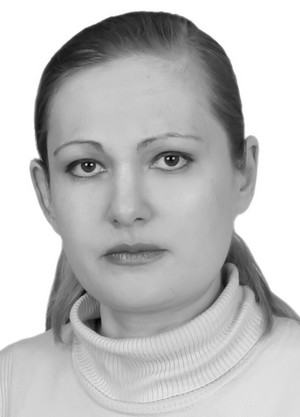Healthy environment building in preschool education system to form up general culture in children
Фотографии:
ˑ:
Teoriya i praktika fizicheskoy kultury №11 2016, pp. 51-53
UDC 796.011.3
Associate Professor, Dr.Hab. S.V. Kakhnovich1
Professor, Dr.Hab., Head of Physical Education and Special Training Chair V.V. Izvekov2
Associate Professor, PhD K.V. Izvekov2
1Mordovian State Pedagogical Institute named after M.E. Evsevev, Saransk, Republic of Mordovia
2Saransk Cooperative Institute, affiliate of the Russian Cooperation University, Saransk
e-mail: kahnowish@mail.ru
The article considers the key factors and technologies to develop a healthy preschool education (PSE) environment and explores contributions of the healthy environment and physical education to the child’s general culture formation process. Special emphasis is made on the role of qualitative and quantitative elements of structural and sensorial information being formed by and acquired from the healthy PSE environment by a child. The study also considers grounds for the art-therapeutic technologies and a variety of aesthetics-centred factors being applied to facilitate the healthy PSE environment formation process. The healthy PSE environment building process will give a due priority to the individualized approaches sensitive to every child. We interpret the healthy PSE environment as the integrity of the personality developing situations designed to help the children efficiently socialize and communicate with their peers, families and other surrounding people of importance for them.
The healthy PSE environment implies the preschool-age children being actively involved in the education and socializing processes to master the culture of interpersonal relationship, basics of healthy lifestyles in the education and breeding processes designed in a stress-free and regulations-free format with top priority being given to the art-therapeutic tools and behavioural self-control developing mechanisms – to help the child make its way from the externally controlled behavioural models to the genuine need in and motivations for the healthy lifestyle.
Keywords: healthy preschool education (PSE) environment, general culture of child.
References
- Ave-Lallemant U. Graficheskiy test «Zvezdy i volny» [Star-Wave test]. St. Petersburg: Rech publ., 2002, 240 p.
- Zakharov A.I. Kak predupredit' otkloneniya v povedenii rebenka [Deviations in child's behaviour: prevention methods: book for kindergarten teachers and parents]. Moscow: Prosveshcheniepubl., 1993, 192 p.
- Zdorov'esberegayushchee prostranstvo v DOU: proektirovanie, treningi, zanyatiya [Preschool health promoting space: design, training sessions, classes]. Volgograd: Uchitel publ., 2009, 218 p.
- Zegarnik B.V. Patopsikhologiya. Osnovy klinicheskoy diagnostiki i praktiki. Izd. 2 [Pathopsychology. Fundamentals of clinical diagnostics and practice. 2nd ed]. Moscow: Eksmo publ., 2008, 368 p.
- Kakhnovich S.V. Formirovanie kul'tury mezhlichnostnykh otnosheniy u detey doshkol'nogo vozrasta (v khudozhestvenno-tvorcheskoy deyatel'nosti): avtoref. dis. d-ra ped. nauk [Formation of interpersonal relations culture in preschoolers (in artistic and creative activity. Doctoral diss. thesis (Hab.)]. Moscow, 2014, 42 p.
- Kakhnovich S.V. Organizatsiya zdorov'esberegayushchey sredy v obrazovatel'nykh uchrezhdeniyakh: programma kursa po vyboru [Organization of health-promoting environment in educational institutions: optional course curriculum]. Curricula of pedagogical disciplines. MSPI publ., Saransk, 2010, pp. 122 – 128.
- Kursheva N.A. Metod proektivnogo risovaniya v glubinno-psikhologicheskoy korrektsii i terapii: lichnost' i mezhlichnostnye otnosheniya v seme i sotsiume: monografiya [Projective drawing technique in deep-psychological treatment and therapy: personality and interpersonal relationships in family and society]. Moscow: MAX Press publ., 2007, 76 p.
- Sokovnya-Semonova I.I. Osnovy zdorovogo obraza zhizni i pervaya meditsinskaya pomoshch [Basics of healthy living and first aid: study guide for students of sec. ped. ed. institutions]. 2nd ed., ster., Moscow: Akademiya publ., 1997, 208 p.
- Homentauskas G. Sem'ya glazami rebenka: deti i psikhologicheskie problemy v seme [Family through the eyes of the child's: children and psychological problems in the family]. Ekaterinburg: U Faktoriya publ., 2006, 192 p.
- Berns R.S., Kaufman S.H.Kinetic family drawings (K–F–D) An lntroduction to Understanding Chidren Through Kinetic Drawings. An lntroduction to Understanding Chidren ThroughKinetic Drawings. N.Y., 1970, 146 р.
Received 03.05.2016 г.



 Журнал "THEORY AND PRACTICE
Журнал "THEORY AND PRACTICE